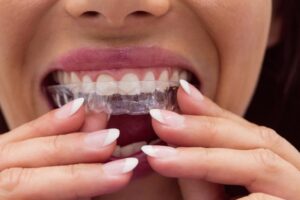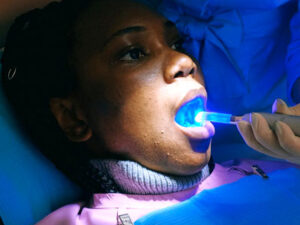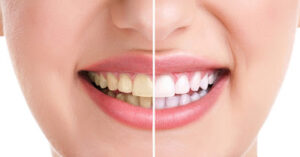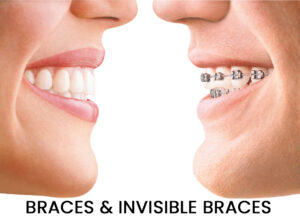
There are many frequently seen dental issues, and perhaps the most common is tooth ache. A toothache can be caused for several reasons and manifest in a few different forms. A tooth pain can be experienced by people of all ages, from small kids up through older adults.
At Smile Dental & Implant Centre, we provide all types of dental services to our customers, including assistance with toothaches for anybody in your family, especially children. If you or anyone else in your family has frequent toothaches or has had a painful toothache issue, you may be looking to get familiar with toothaches and why they happen, including how to prevent or cure them.
Toothache and Tooth pain sources
A toothache is a pain in and around a tooth in the mouth. Tooth aches range from very minor and barely noticeable all the way up to huge, painful, and major issues that may require professional dental help.
We’re frequently asked: Why are tooth aches so painful? After all, teeth are simply small parts of the body, and it confuses certain people that they can cause a lot of pain. The solution is simple: how many significant nerves, tissues, and blood vessels are inside the pulp of your inner teeth? This pulp is incredibly delicate, and maybe more so than any other part of the body. They may be small areas, but their sensitivity makes the teeth prone to significant levels of pain if they aren’t properly cared for.
Toothaches are caused by
There are many potential reasons for toothaches, including the following:
- Tooth decay over time, including repeated dental cavities due to lack of brushing and/or flossing,
- An abscessed tooth (a bacterial infection that happens within the tooth’s interior)
- A damaged or inappropriately made filling
- A broken or fractured tooth
- Infection in the gums and periodontitis
- Repetitive movements like chewing gum or grinding teeth wear out the teeth and debilitate their defenses against toothache risks.
- Eruption (when new teeth grow into the mouth in children) or removal of teeth
Common signs and symptoms
Here are some signs or symptoms that someone experiencing a toothache could feel or show (assuming you’re a parent, keep an eye out for these signs in any small kids who might not be able to adequately communicate their pain issues):
Tooth pain: Several types of pain may occur because of a toothache. The tooth may throb, may cause a sharp pain, or could be a steady dull ache. Certain toothaches only hurt when you put pressure on the tooth area from biting; others may be exacerbated by outrageous temperatures (especially cool ones).
- Swelling around the tooth area
- Fever or headache with no other recognizable cause?
- Poor odor from the mouth
- Foul-tasting waste that comes from the contaminated tooth itself (you should seek emergency dental help right away if this is happening to you or anyone).
- Trouble breathing or gulping along with pain
Prevention of Toothaches
While every one of the causes we went over above is a potential risk for toothaches, by far the most well-known is tooth decay. Hence, prevention of toothaches mostly comes down to essential oral hygiene practices, like brushing twice daily with good fluoride toothpaste, flossing at least once a day, and visiting your dentist at least twice a year for professional cleaning and care services.
Home Treatment Methods
In specific cases, for example, minor gum irritation such as toothache pain may go away on its own in around 24 hours or thereabouts. If this doesn’t happen, however, or if the pain is significant at first, there are a few essential home methods for treating toothache pain:
Saltwater: Mix some warm water with salt for a solution that will both disinfect the mouth and help with lessening any inflammation. What’s more, saltwater may loosen any tough debris stuck between your teeth that may be contributing to the toothache. We recommend half a teaspoon of salt for a standard cup of warm water, which you wash around in your mouth completely a few times a day.
Hydrogen peroxide: In some cases, a 3% hydrogen peroxide solution will also help with lessening pain and inflammation. Make sure to weaken this with a balance of water and don’t swallow it.
If you have swelling in the tooth, hold a cold compress of ice to the area for 15 to 20 minutes all at once, repeating every several hours.
Various over-the-counter pain medications will also help with pain and inflammation. If it’s a child under 16 experiencing the toothache, just Tylenol should be used, not aspirin.
Some have also reported success with natural or herbal treatments, but these are not really supported by dental organizations, and you should consult your dentist first.
Dental Assistance
If you have a tooth ache that lasts longer than a day or two, or if the Tooth pain is incredibly extreme and isn’t responding to home therapies, you should schedule an immediate appointment with your dentist. This should also be done if you have a fever, related earache, or specific pain when you open your mouth broadly. Finally, call us for help if you’re experiencing huge swelling in the mouth or face region, as this may require professional care immediately.













